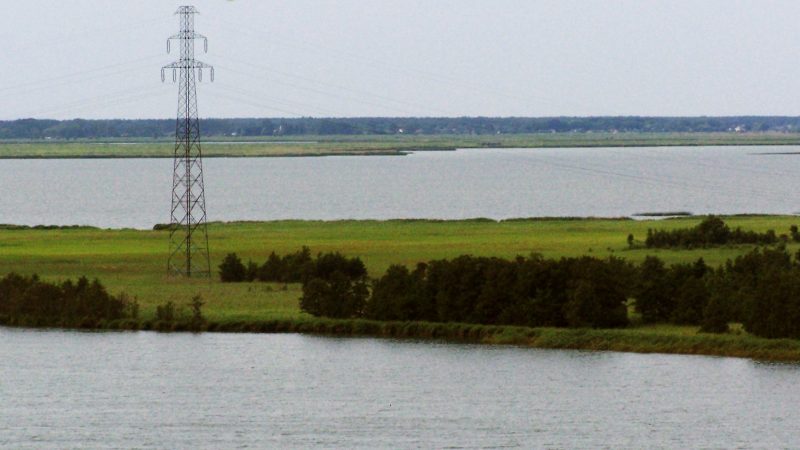The Green Deal is Europe’s growth strategy. Making it the backbone of the recovery plan is not only necessary in a climate perspective, but also from an economic point of view – in order to create growth and work opportunities that are sustainable in the long run, argue Nordic energy CEOs and top executives.
This op-ed was submitted by Nordenergi, the collaboration between the Nordic associations for electricity producers, suppliers and distributors. Signatories include:
- Pernilla Winnhed, Director General, Swedenergy
- Anders Stouge, Deputy Director General, Danish Energy Association
- Knut Kroepelien, CEO of Energy Norway
- Jukka Leskelä, CEO, Finnish Energy
Entering 2020, it seemed our societies would benefit from years of economic growth. Now, the outbreak of COVID-19 has shaken the world. It has already led to loss of countless lives, unemployment rates have skyrocketed and businesses are forced to shut down.
Having progressed somewhat in the health crisis, the full scale of its effects on the economy is yet to be seen. Understandably, European leaders are in a hurry to agree on a recovery plan for Europe. Some politicians are arguing that now is the time to re-prioritise and postpone the Green Deal.
We strongly disagree. Delaying the Green Deal will send the wrong signals to the Member States and the financial sector, and increases the risk that we will leap from the COVID frying pan into the climate fire, as stated in the Oxford Review of Economic Policy.
Instead, climate investments and policies should be accelerated to ensure the green transition – while creating jobs and growth all at once.
Let us not forget that the most effective way to reach the climate target is through carbon emissions trading within the EU ETS. Moreover, the EU ETS might need to be further strengthened, in the upcoming revision, to lead the transition effectively also after the crisis. A market-based system is the only guarantee that we will achieve green, affordable and reliable energy to all European citizens.
However, a recovery plan is necessary, and we need to make it coherent with the goal of making Europe carbon neutral.
Green Deal should be the backbone of the EU’s recovery plan
The Green Deal is Europe’s growth strategy. Making it the backbone of the recovery plan is not only necessary in a climate perspective, but also from an economic point of view – in order to create growth and work opportunities that are sustainable in the long run.
A recent working paper in the Oxford Review of Economic Policy with the title: “Will COVID-19 fiscal recovery packages accelerate or retard progress on climate change?” highlights how a green recovery, e.g. investments in clean energy infrastructure, energy efficiency and R&D, will benefit our long-term climate ambitions and deliver greater economic benefits than investments in fossil fuels.
Therefore, we urge the European leaders and the energy sector to bring forward investments in energy systems integration, meaning projects where different sectors are combined like for example the use of recycled heat from industry in district heating or electrification of transport. Investments in clean energy projects, energy infrastructure and grid are also crucial. In this regard, the electricity industry has a range of opportunities to help reignite the economy.
Electrification is key to unlocking the green transition. The large-scale electrification of our societies will need substantial investments in infrastructure, technologies and new services. To enable electrification of sectors still reliant on fossil fuels, significant renewable and carbon-neutral energy expansion and accelerated sector integration is vital.
One sector still heavily reliant on fossil fuels is the transport sector, which accounts for approximately 20% of EU’s greenhouse gas emissions. In order to live up to existing legislation, more than 800,000 charging points must be installed within the next five years. Accelerating the roll-out of charging points will generate jobs and provide a short-term economic boost while contributing to the target of climate-neutrality, and result in lower cost of energy for European households.
There are some sectors, such as long-haul trucking, shipping and aviation, where direct electrification appears difficult today. Therefore, a technology neutral approach open to investments in biofuels and zero-emissions power-to-X facilities must be prioritised in order to decarbonise the so-called “harder-to-abate” sectors.
Inadequate infrastructure is currently a barrier for increased deployment of carbon-neutral electricity and for renewable energy industries to expand and create work opportunities. Grid investments are also necessary in order to transport large amounts of electricity locally across Europe and is a cost-effective route to economic recovery.
Moreover, the Recovery Plan should focus on improving Europe’s internal market for energy. An energy market where cross-border energy flows effortlessly will maximise integration of low-carbon energy, which is essential in the decarbonisation of the EU economy. As this requires adequate infrastructure, the Recovery Plan should prioritise interconnector projects that enable cross-border trade in electricity.
A defining moment for Europe’s future economy
We urge the European commission, EU’s member states and the European Parliament to resist the temptation of falling back into old habits, and instead seize this opportunity to make the recovery of Europe green. Otherwise, we risk going from one crisis to another.
